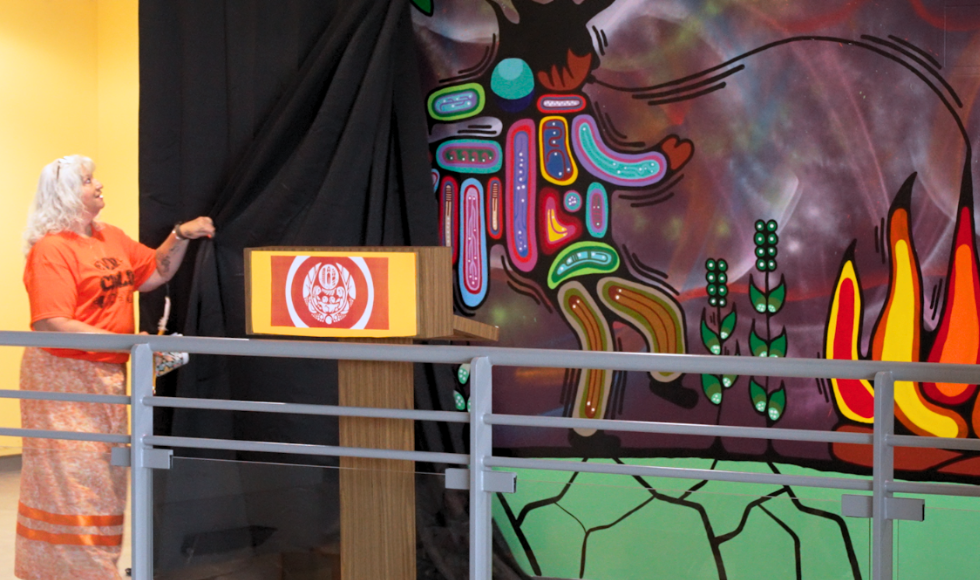‘Our intrinsic bond’: Indigenous mural unveiled at the Integrated Applied Health Sciences building

The mural created by Indigenous artist Kyle Joedicke is located on the fourth floor of McMaster’s Integrated Applied Health Sciences building.
A mural painted by Kyle Joedicke, a Cayuga (Turtle Clan) artist from Six Nations of The Grand River, now welcomes visitors to the fourth floor of the Integrated Applied Health Sciences building at McMaster University.
The mural, which was unveiled on Sept. 29, was jointly commissioned by the School of Rehabilitation Sciences and the Department of Surgery at McMaster.
Leaders from these groups gathered with faculty, staff, students and community members to celebrate the mural and underscore their immediate and local commitment to Truth and Reconciliation.
“It illustrates the passing of knowledge to the younger generation,” said Joedicke, of the mural at the unveiling. “At its core, an elder morphs into an eagle, which represents love as per the Seven Grandfather teachings. Beside this transformation are abstract portrayals of three sacred medicines: tobacco, sage and sweetgrass — used in ceremonies either as offerings to the creator or for purification. The backdrop resembles the Dish With One Spoon Wampum, denoting a pact to share land and resources harmoniously among Indigenous and non-Indigenous people. The mural’s outer edge is adorned with vines showcasing abstract flora, underscoring our intrinsic bond with nature.”
The event was attended by Dina Brooks, vice-dean and executive director of the School of Rehabilitation Sciences, and Mohit Bhandari, professor and chair of the Department of Surgery.
“Our country is currently navigating a deep introspective journey, confronting unsettling truths from our history,” said Brooks, acting executive vice-dean, associate vice-president, Academic for the Faculty of Health Sciences at McMaster. “The Truth and Reconciliation Commission of Canada revealed overlooked moments, urging us to consider colonization and its generational impact more deeply. Facing challenges and gaining awareness is how we progress. As educators, researchers and health-care workers our role isn’t to be mere bystanders; we must be proactive, fuelling growth on both personal and institutional levels.”
The mural is a small but significant step in the School of Rehabilitation Sciences’ and the Department of Surgery’s work towards truth and reconciliation.


